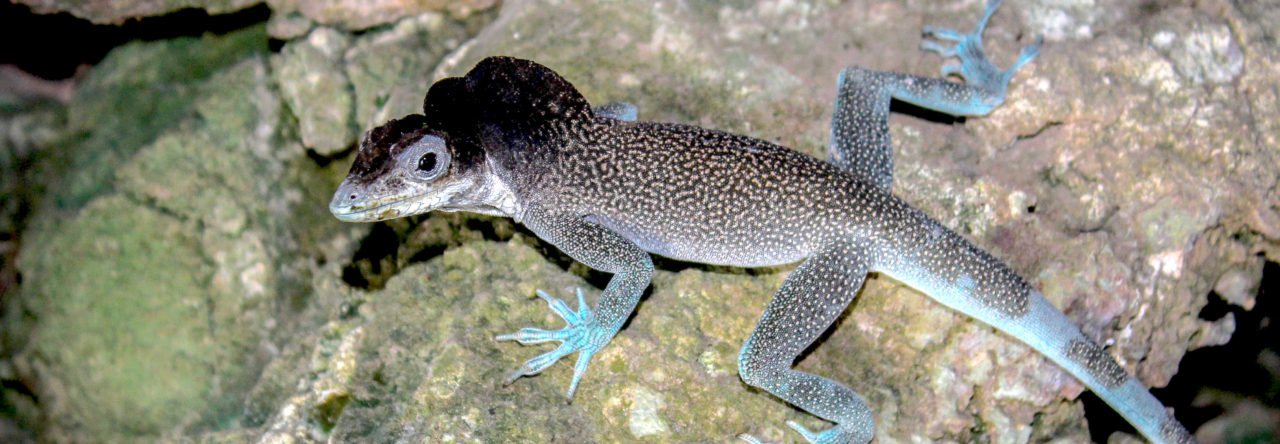 Eminent herpetologist Laurie Vitt, recently retired from the University of Oklahoma (but active as ever), gave the Distinguished Herpetologist’s Lecture at the 2012 Annual Meeting of the Herpetologists League, which was part of The World Congress of Herpetology 7. The talk, the basis of a just-published paper in Herpetologica, was a paean to the fundamental importance of natural history to modern science, using vignettes from Laurie’s career as excellent examples.
Eminent herpetologist Laurie Vitt, recently retired from the University of Oklahoma (but active as ever), gave the Distinguished Herpetologist’s Lecture at the 2012 Annual Meeting of the Herpetologists League, which was part of The World Congress of Herpetology 7. The talk, the basis of a just-published paper in Herpetologica, was a paean to the fundamental importance of natural history to modern science, using vignettes from Laurie’s career as excellent examples.
The article starts in a thought-provoking way:
“Darwin’s studies provide a prime example of the importance of natural-history studies to conceptual biology… [On his voyage on the Beagle], Darwin collected a massive amount of data on geology, zoology, and botany while on land; and after returning, publishing some classic monographs, and mulling over his observations, he assembled his classic volume “On the Origin of Species,” in which a massive amount of natural-history data combined with experimental studies on selective breeding were used to support his theory of evolution by natural selection.”
And the key take-home:
“At least five key elements contributed to Darwin’s ability to put together his compelling theory, which continues to be the unifying theme of modern biology: (1) five continuous years in the field collecting natural-history data, (2) funding with no apparent restrictions on what he could do, (3) no electronic distractions, (4) time to write and think after returning, and (5) much help, including funding for the classic Zoology series, edited by Darwin but published by various authors.”
Though not extensively autobiographical at a personal level, there are some vignettes:

This wasn’t mentioned in the article.
“I grew up with an interest in natural history, subjecting my parents to loose bats and garter snakes in the house, as well as rattlesnakes and later, Old World vipers including puff adders, Gaboon Vipers (Bitis gabonica), and Russell’s Vipers (Daboia russelii) in terraria in my bedroom (which in retrospect suggests that I was either ignorant of the potential effects of snakebite, or downright stupid!).”
And it concludes with an important, little appreciated message:
“The fact is that we have decent natural-history data for less than 5% of the squamate fauna of the world. In examples reviewed above, natural-history observations led to new and different insights into the evolution of life-history and ecological traits. What animals do in their natural habitats matters, and each story in itself can offer new insights into how the natural world works.
Natural-history observations provide the critical basis for the generation of realistic hypotheses, and recognition of functional traits that can be quantified provide data necessary to reconstruct the evolutionary history of the many remarkable things that individual species do. Natural-history data are critical to developing conservation strategies for individual species or communities (you cannot manage what you do not understand) and identifying and understanding processes that contribute to persistence in habitats as varied as deserts, oceans, rivers, lakes, savannas, tropical rainforests, and temperate plains and forests. We can only imagine the feeling of gratification Charles Darwin must have experienced when his natural-history observations congealed in his mind to produce the theory that would tie together all life on Earth. Natural history will continue to be the science of discovery, regardless of whether funding agencies, universities, or unenlightened academicians recognize it; and after all, it is the science of reality.”

They’ve done some evolving in the last few hundred million years
Finally, as an aside, Vitt has some important comments on using the tuatara as a model for the ancestral lizard. As Vitt notes, tuataras are just one lineage in the Rhynchocephalia and have been diverging on their own way for many millions of years; hence, we need to be very careful in assuming that traits exhibited by the tuatara correspond to the ancestral trait possessed by the last common ancestor of lizards and rhynchocephalians some 250 million years ago.
- Evolution in Real Time on Lizard Island - March 23, 2025
- Spider Snags Adult Anolis osa - March 22, 2025
- An Homage to the Green Anoles of New Orleans - March 21, 2025


Rich Glor
Great paper.
Any chance that “The Night People” will be reuniting now that Laurie is retired?
Kate McCain
Nice article on Laurie — I knew him at WWSC back in the late 60s, early 70s when we shared a lab office while doing our MS degrees. I promise that his later rock band was much more disreputable than the dapper folks shown. And, judging by the number of venomous snakes (and arachnids) in our office, his interest in dangerous herps persisted.